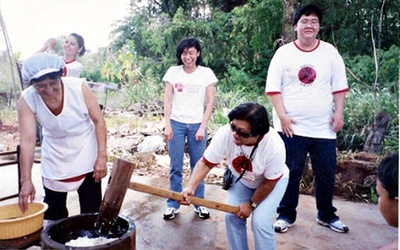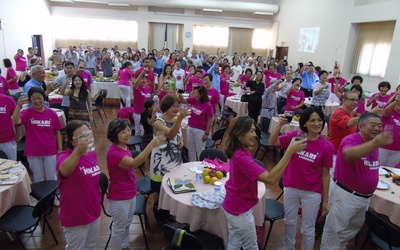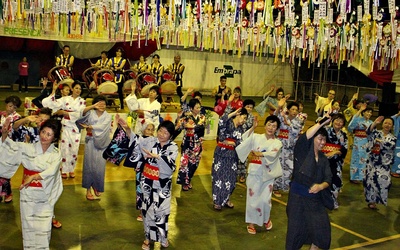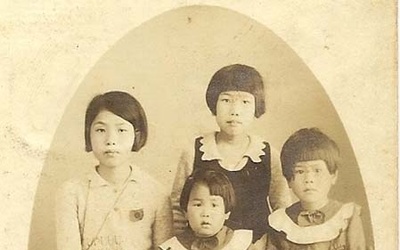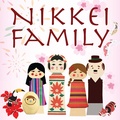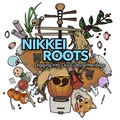
Kiyomi Nakanishi Yamada
@KIYOMIBorn in Bebedouro, in São Paulo, Brazil, she has a Nursing degree from the University of São Paulo (USP). She worked as a professor at the State University of Londrina (UEL) until her retirement in 2010. She currently belongs to the staff of UEL’s FM Radio program “Tecer Idades” for this age group. She works as a volunteer in projects related to the field of aging, and she is a member of the board of directors of the "House of Support to the Family of Elderly Bedridden" in Londrina. She is a staff member at the Hikari Group of Londrina, whose aim is to keep Japanese culture alive. She is responsible for both the production and the written content of their site.
Updated June 2018
Stories from This Author
The Mochitsuki Tradition in the Hikari Group of Londrina, Paraná
June 25, 2018 • Alba Shioco Hino , Nilza Matiko Iwakura Okano , Kiyomi Nakanishi Yamada
In Brazil, mochi – little cakes made with a glutinous Japanese rice known as mochigome – are easily found in supermarkets, street markets, and specialized grocery stores in areas with a large concentration of Japanese immigrants and their descendants. Most of those who see this product stocked on supermarket shelves are unaware of its origins and meaning in Japanese culture. In the past, the mochitsuki – pounding mochi – was a more laborious process as the cakes were made in artisanal …
The influence of Japanese cuisine in Brazil – yesterday, today and tomorrow
June 26, 2017 • Alba Shioco Hino , Nilza Matiko Iwakura Okano , Kiyomi Nakanishi Yamada
Japanese immigrants came to Brazil in the last century to work on coffee plantations with the dream of becoming rich and then returning to Japan. Faced with the difficulties encountered and, realizing that it would not be possible to make this dream come true, they began the process of integration with the Brazilians ( gaijin ). Little by little they adapted to the customs, cuisine, religious beliefs and lifestyle of the people here. But in family life, they preserved their …
The Japanese language in the daily lives of the members of the Hikari Group of Londrina
Sept. 19, 2016 • Alba Shioco Hino , Nilza Matiko Iwakura Okano , Kiyomi Nakanishi Yamada
We belong to a generation of children, youths, adults, and seniors who are descendants of Japanese immigrants who came to Brazil in the years before World War II. Some are children, others are grandchildren, great-grandchildren, and great-great-grandchildren of these immigrants. After leaving Japan, our ancestors gradually began to absorb Western culture, although the influence of Japanese culture has been preserved in many families, especially when the younger generations come in contact with older people who pass on to the younger …
My Life, Our Life: The Present, The Past, and The Future
Sept. 22, 2015 • Kiyomi Nakanishi Yamada
In this life we are the protagonists of a number of stories, but in many instances the actors remain unknown because their recollections have not been recorded. My maternal and paternal grandparents were born and lived in Osaka and Tokyo until the 1930s, when they came to Brazil to work in the coffee plantations. Sizuyo, my mother, currently at the age of 89, is the only “living memory” of her family as well as my father’s. When she turned 70, …

